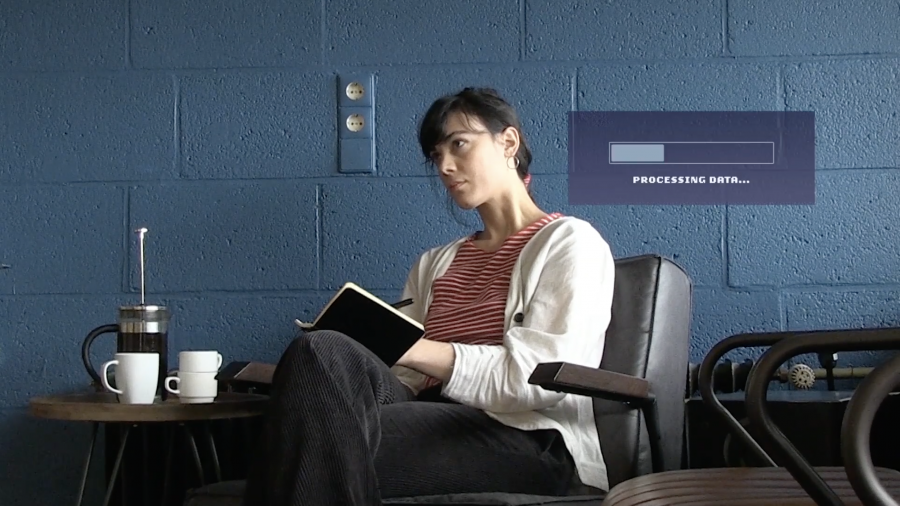ALEXANDRA is a short film made in order to spark conversation with people about how to design digital systems in a good and humane way. The film aims to open up a critical and nuanced conversation on blockchain algorithms for sustainable, local communities with the people of Amsterdam.
In our present time, digital technologies often creep in on us without our conscious reflection. Design fiction can be used to pause, reflect upon, and discuss openly about our future and present technologies. Design fiction allows us to take a look at the social and political consequences of these technologies and design solutions even before they’re fully realized. The maker of ALEXANDRA, Anna Brynskov, is an aspiring researcher who uses film making as a tool to start a conversation with a broad audience, and as a tool to reflect on these technologies that can be everything between scary, hurtful, useful and fun.
ALEXANDRA is the name of an algorithm that governs the relationship between two guys that share a household. The film explores the imaginary for how human values and algorithms merge. ALEXANDRA governs their relationship in a very particular way. She neither governs their lives based on the values of Silicon Valley or on what government bodies have decided is ‘good’ for people. The algorithm impersonates the body of a female character (Alexandra) and humans can negotiate directly with her through conversation. The algorithm is therefore based directly on the values and desires of the people that use her. Wonderful, right? Or?
Even with a seemingly fair and conversational algorithm like ALEXANDRA, could we imagine undesired consequences of having her in our homes? Which ones exactly? And why would we even install her in the first place? Could we imagine that she would strengthen the relationship between the two guys? To which degree is she scalable for a bigger community than just two guys?
And for reflection one step further: why do digital systems like ALEXANDRA, Siri and Alexa always have women’s voices? Is ALEXANDRA different from the others or just as powerless as the usual digital personal assistants?
The film is made as part of the research project “Circulate” in the research group Play & Civic Media at Hogeschool van Amsterdam. The researchers in the project investigate values, dilemmas and tools related to the design of local digital platforms for the circular economy. Anna Brynskov is currently a research intern at Play & Civic Media. The internship is part of the final year of her master’s degree program in Digital Design at Aarhus University, Denmark.
